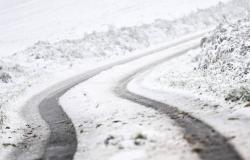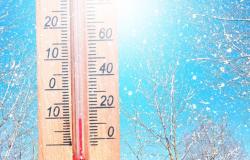
Wednesday November 20, 2024
In Sweden, as in Finland and Norway, governments have distributed “survival manuals” to know what actions to take in the event of a crisis, climatic disaster or war. A practical response to the threats that are intensifying in these countries.
Distributed this week in Sweden, a “survival manual” for crises and war has just been developed in response to the growing threats hovering over the country. Extreme weather conditions, armed attack, health crisis… all the worst scenarios are anticipated and the methods of action are detailed so that residents are not caught off guard if one of them happens.
This booklet is an update of a previous version published six years ago and half the size. For good reason, “the deterioration of the security situation due to Russia's large-scale invasion of Ukraine”underlines British radio BBC. Sweden, like Finland, joined NATO, the military organization of the North Atlantic countries, after Moscow's invasion of Ukraine in 2022.
Read also: This is how a country can join NATO
A physical version distributed to all Norwegian and Swedish homes
Indeed, Sweden is not the only one to distribute “survival manuals”. The Finnish government has just published advice online for its population on how to “prepare for incidents and crises”. Moreover, “Norwegians also recently received instructions from authorities urging them to be prepared to survive on their own for a week in the event of extreme weather, war and other threats”adds the BBC.
On the Finnish side, the manual is only available in digital version for economic, ecological and practical reasons, the digital version can be updated more easily. But in Sweden as in Norway, residents all received a small physical manual: “We sent 2.2 million paper copies, one for each household”said Tore Kamfjord, member of the Norwegian Directorate of Civil Protection (DSB).
The Finnish brochure explains in a specific section how the government and the president would react in the event of an armed attack, emphasizing that the Finnish authorities are “well prepared for self-defense”. Due to its vast border with Russia and its World War II experience with the Soviet Union, “Finland has always maintained a high level of defense”reminds her BBC.
Read also: Why is tension rising between Finland and Russia?
“Finland has never forgotten that war is a possibility”
On the other hand, on the Swedish side, preparation for a potential conflict is recent. The country even reduced its defense infrastructure in recent years. But Sweden's Civil Defense Minister, Carl-Oskar Bohlin, warned this year that“there could be a war in Sweden” and considered that the measures aimed at rebuilding this “total defense” were progressing “too slowly”.
He then justified the creation of this survival manual last month by explaining that as the global context changed, information for Swedish households also needed to reflect these changes. “Finland has never forgotten that war is a possibility, while in Sweden they had to shake people up a bit to make them understand that it can really happen”said Ilmari Kaihko, associate professor of war studies at the Swedish Defense University, interviewed by the BBC.
The “survival manuals” of these three countries include instructions on what to do in different scenarios and ask citizens to ensure that they can fend for themselves, at least initially, in the event of a situation. of crisis. The Norwegian list lists items to keep at home as “cans of beans, energy bars and pasta, as well as medicines such as iodine tablets in the event of a nuclear accident”.
In Finland, the question primarily revolves around the cold. “We ask them how they would manage without electricity for days at temperatures as low as -20°C”underlines the BBC. The list also includes iodine tablets, as well as easy-to-cook foods, pet food, and an alternative energy source.
Read also: Setting out for halibut, these Norwegian fishermen catch… a nuclear submarine in their net
“Keep enough food and water for 72 hours”
Finally in Sweden, potatoes, cabbage, carrots and eggs are recommended, as well as cans of Bolognese sauce and cranberry and rosehip soups and preparations.
“One of the most important recommendations is to keep enough food and water for seventy-two hours”summarizes the British media. And even if it can be scary to receive a “survival manual”, that doesn’t mean it will be useful. But prevention is better than cure.





